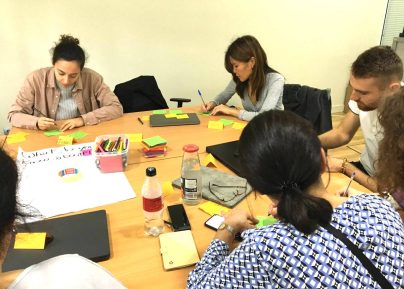Not a ‘sexy’ topic, but for many it is fundamental: How do I keep up with my finances? How to get out of debt? How to invest money – if you have it? What is money? What characterizes our financial system? Colleagues from four countries discussed these questions from 13.-16.11.2023 in Porto.
Within the framework of the project “FLIT – Wings to fly”, partner organisations from Bulgaria, Portugal, Slovakia and Germany are working together. The workshop in Portugal was dedicated to feedback on the project results, the target groups and the experiences gained by the project participants during their activities on the ground in each country.
The question of how financial literacy should be characterized as a relatively young field of socio-economic education and how long this segment of education has been promoted in this way took up somewhat more space. It is striking in the corresponding publications of banks, foundations and governments that financial education is designed exclusively in an application-oriented way, with greater attention being paid to private retirement provision. Is financial literacy in this reduced form a kind of education-related flanking of the privatization of pensions? Can financial education be used to “blame” people who are in debt – because they are not sufficiently educated in this regard? Why is the banking and financial system and its vulnerability to crises ignored or underexposed?
It seems appropriate to discuss financial literacy in at least six dimensions: 1. business – this usually happens, 2. macroeconomic, 3. legal, 4. political, 5. social-psychological, and 6. gender equality. More on this when the project results are published.

